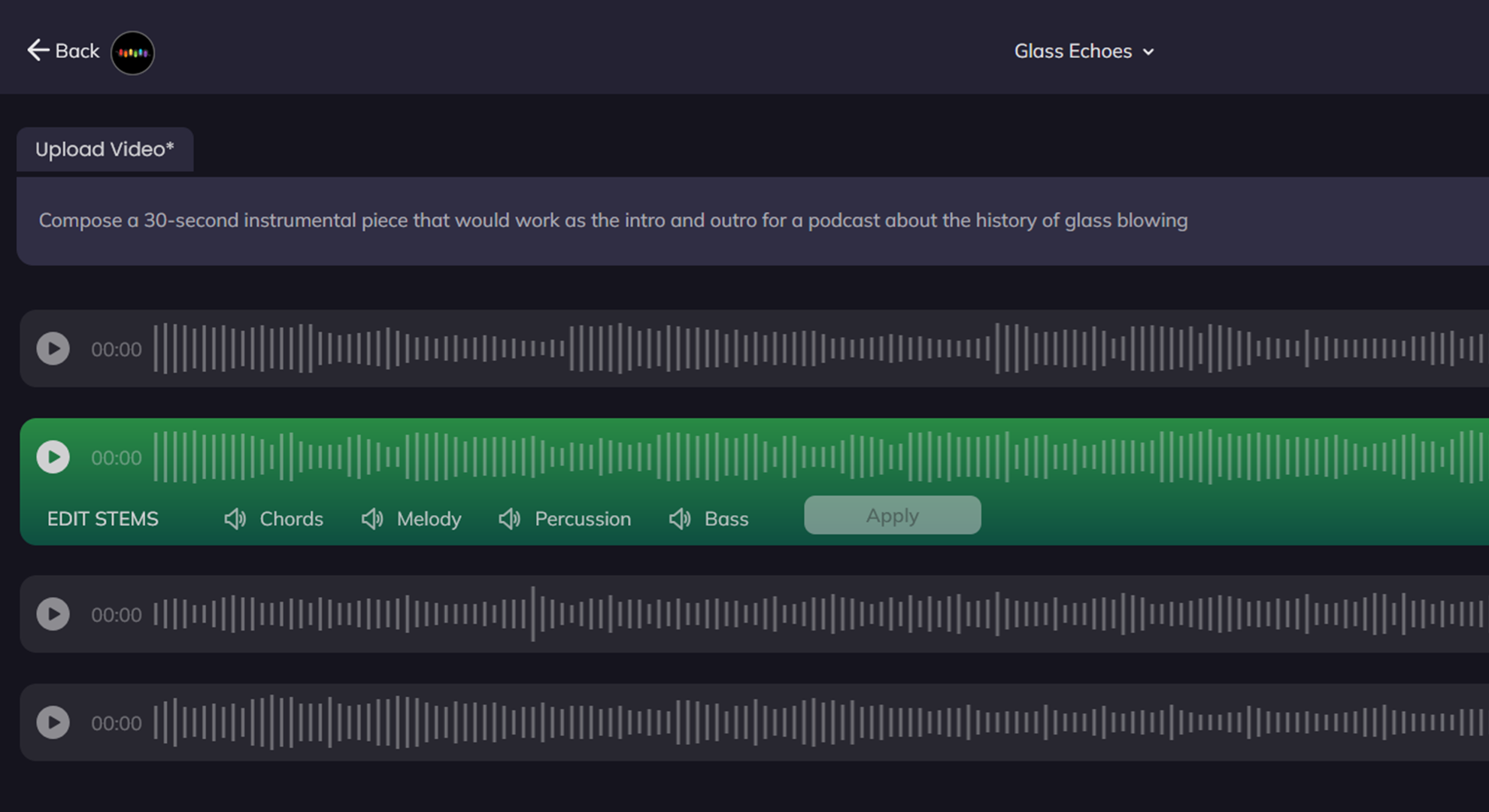I tried using AI to create the background music for a podcast, but I may stick to music libraries for now
Or I'll need a lot more time testing them

When I make audio or video content, one element I always struggle with is music. I don't mean a full theme song or anything, but just some basic intro and outro tunes to ease people into the beginning or end rather than just abruptly beginning to speak.
There are lots of good music libraries out there, but with the growth of many AI music tools, I thought it would be fun to see if they were any better than me at composing an appropriate musical motif.
To properly test it, I decided to quickly make a 'podcast' using another AI tool I’d been toying with, Google's NotebookLM. The Audio Overviews feature can turn documents, video transcripts, and other information sources into AI-generated podcast-style recordings between two AI hosts. On a whim, I picked glass blowing as a topic just because it interests me.
I gave NotebookLM a handful of links and videos about the history of glassblowing and how it works. Soon, two AI voices discussed it for more than 20 minutes. But for this, I only needed about ten seconds.
Suno serves
I tried a few different AI music tools, including Soundverse, Beatoven, and Loudly. They all had their moments, but most just didn't quite crack it. I tried short prompts, longer detailed ones, and even just keywords. Mostly, they were okay, but often, they were discordant or simply uncomfortable to listen to.
After way too long trying out different prompts and edits, I landed on asking Suno to make an instrumental track that would work as the introduction to a podcast about glassblowing- as simple as that.
Suno produced two tracks with the evocative title "Shaping Fire and Sand." One was just alright, but the other had the perfect kind of ambient and light classical tone I could easily imagine being heard ahead of a nerdy discussion of annealing and sand purity.
Sign up for breaking news, reviews, opinion, top tech deals, and more.
When I stitched everything together, it kind of worked – or at least it wasn't distracting from the incoming speech. I ran it by a few friends, and none of them noticed the music being AI-generated, though they did spot the actual podcast as AI voices.
You can hear how it went below.
I won’t pretend it was perfect. I had to set the fading manually, and if the music were from human musicians, you might think they were more enthusiastic than talented. Still, Suno did a great job for a free tool without any complex production required.
I don't think I would automatically choose it over something from a human composer, even in a free song library. The customization available with AI can't override human creativity in most cases; the AI podcast proves that. But, as an experiment, Suno made a harmonious addition.
You might also like

Eric Hal Schwartz is a freelance writer for TechRadar with more than 15 years of experience covering the intersection of the world and technology. For the last five years, he served as head writer for Voicebot.ai and was on the leading edge of reporting on generative AI and large language models. He's since become an expert on the products of generative AI models, such as OpenAI’s ChatGPT, Anthropic’s Claude, Google Gemini, and every other synthetic media tool. His experience runs the gamut of media, including print, digital, broadcast, and live events. Now, he's continuing to tell the stories people want and need to hear about the rapidly evolving AI space and its impact on their lives. Eric is based in New York City.
You must confirm your public display name before commenting
Please logout and then login again, you will then be prompted to enter your display name.